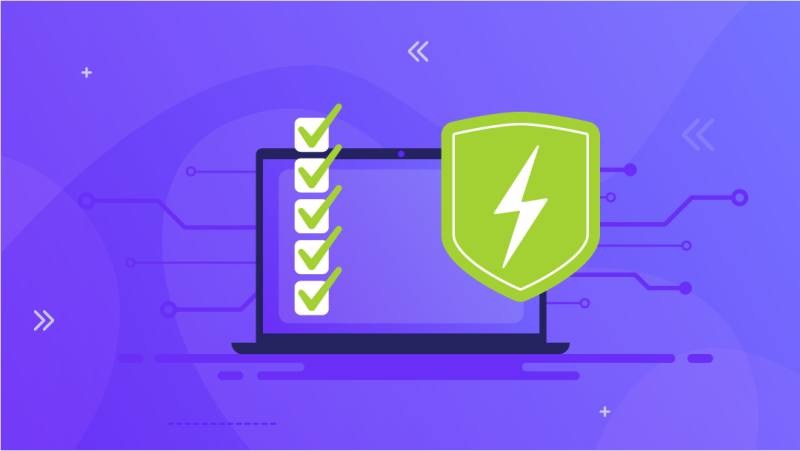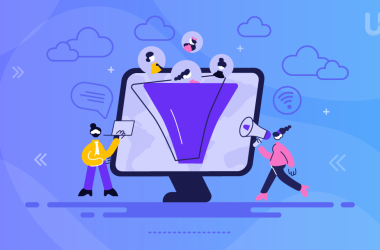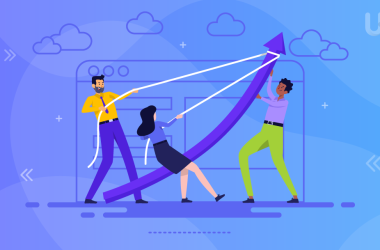Scared of potential DDoS attacks and hackers? Want top-grade security and penetration protection on your website from the bad guys?
You would always want your website to be up and running so that your audience can access it 24 hours a day, 7 days a week. There are several aspects of your website’s performance that you need to take care of. One of these is loading issues that your audience may face and they are pretty easy to cover. Read our in-depth guide on how to see if your website is up and how to fix it if it is not.
Another major, albeit often overlooked, aspect of website performance is security. This is easily one of the most vulnerable aspects of your website as well because it is disrupted externally and it is very little you can do to fix things once your security has been exploited. So why exactly does the security of your website matter so much?
Well, for starters, your website is rendered inoperable in case of any security attack. For example, a DDoS attack (we’ve covered it extensively and how to protect your website from it) may cause your website to load in hours and at the very worst it can render your website absolutely inaccessible to your audience. Other attacks can cause the hosting server to fail and to be unable to load your website and its resources successfully. As a result, your audience might become extremely frustrated and it will definitely impact their relationship with you in the long term.
Moreover, security attacks can completely override your website’s content so even if it is accessible to your audience, they will not be able to view your content on that website. It is common practice among groups of unethical hackers to impose their branding on the page of your website to mark it as their property unrightfully. This will lead to your audience being unable to access the content from your website. These changes can also be permanent meaning if you do somehow manage to recover access to your website unless you have a backup, it can completely wipe out all the content you have put out on the website.
For commercial websites, security threats could also pose very large financial problems. Just a few minutes of your website being inaccessible to your customers could lead to very large losses in sales. This can cost your business a significant amount of revenue and it is highly likely that it will heavily damage the trust of your customer as well as your brand image.
Most websites, especially those with an enterprise or commercial purpose, hold some form of sensitive data. This data is usually protected with encryption but if it falls in the wrong hands encryption cannot keep it secret for very long. Hackers use security exploits and attacks on your website to access this data leading to irrecoverable and potentially destructive losses. Keeping all these reasons why the security of your website matters, here are 5 tips for you to keep your website safe and secure.
Secure your URL
A URL (Uniform Resource Locator) address, also known as a link or web address, is the address used to access your website. This URL points the user of the internet to the location of your website on the web. There are two things you must do at any cost to secure your URL. You must make your URL compatible with the HTTPS (Hypertext Transfer Protocol Secure) protocol. This protocol ensures that the transfer of data taking place between the user’s web browser and your website is encrypted, authentic, and has integrity. Secondly, you must obtain an SSL (Secure Sockets Layer) certificate. This protocol allows a secure, encrypted transfer of the user’s data to make sure there is no compromise at any stage the sensitive data is in transit.
Use a Secure Web Host
Your web hosting provider determines the security features and software that can be implemented to ensure the smooth running of your website. If your hosting provider has a robust firewall system in place, it will act as a very good primary barrier for attackers and may even reduce attacks to your website by over 80%. Other features like SFTP (Secure File Transfer Protocol), Rootkit Access and automated backups help to boost the security measures in place. Thankfully, if you are an UltaHost customer then you do not have to deal with all these issues. Check out our list of security features here.
Software Stability
Oftentimes, the software set up on your hosting server becomes a point of failure or exploitation. This should be prevented at all costs. Softwares like WordPress push regular, security-focused updates that improve the experience of their product while fixing security vulnerabilities and loopholes. Moreover, non-authentic or pirated copies of many software can often be infected with malware that could lead to your website’s security being compromised. In short, keep all of your software updated frequently and purchase copies of the software only from the creator or some sort of authorized reseller.
Protect Against SQL Injections
Whenever code is written in Standard Transact SQL, it can be left open to many vulnerabilities and security risks. Malicious code can easily be inserted into the script without being detected properly. This can cause changes, modifications, or deletions in the tabular data of your website. The solution to protecting against this safety risk is to use parameterized queries in all SQL and PHP code.
Dual Validation
It is possible that you might get carried away and focus all your attention on the server end of the spectrum of your website’s operation. It is easy to get indulged in this however you have to remember that the user side of things is just as important to the smooth operation of your website, if not more. As a result, you should be mindful to validate all your security concerns and improvements from both channels; both your web hosting and server and the user’s browser interface.
Those were our tips for you to make sure your website is safe and up and running. Did we miss something you know? Let us know in the comments section below.
Found this article helpful? Check out our blog for more like this.








